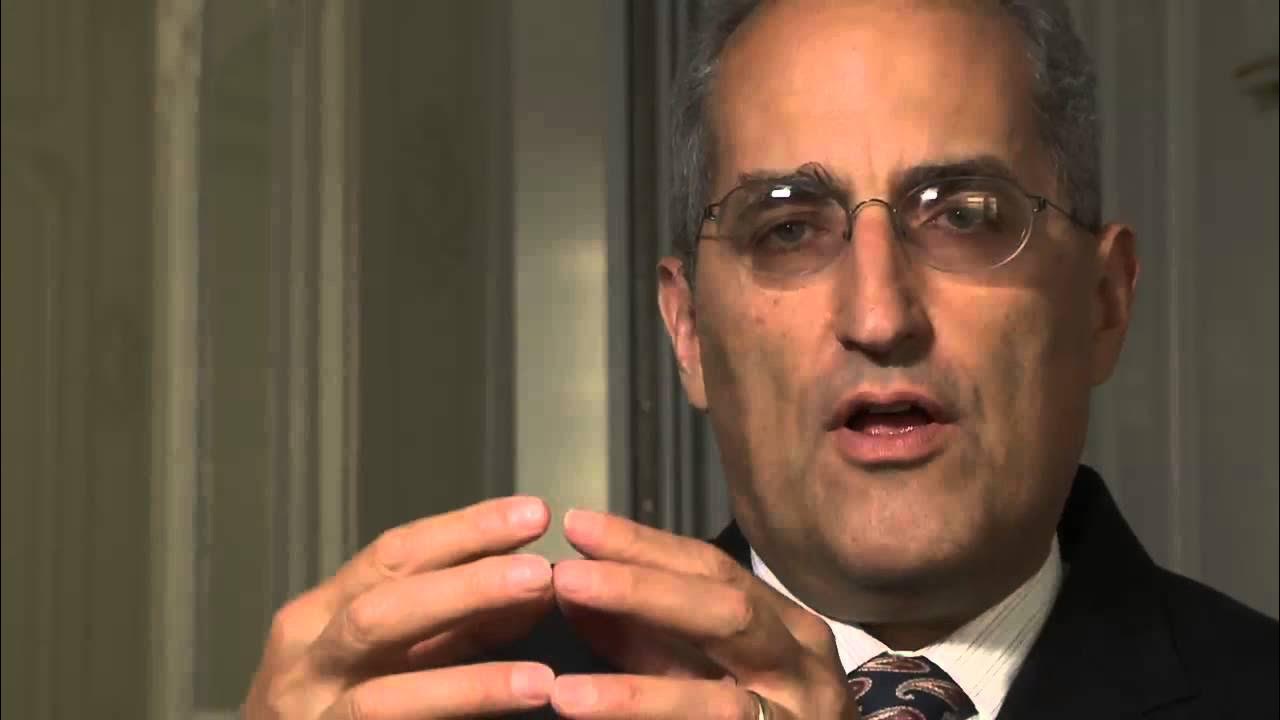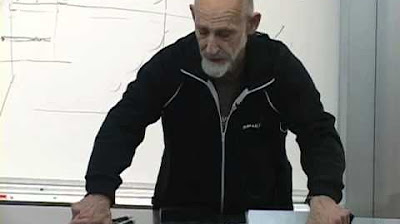Is Theoretical Physics Right for You? Interview with Dr Shiraz Minwalla
TLDRIn this enlightening conversation, Dr. Shiraz Minwala, a prominent theoretical physicist from TIFR Mumbai, delves into the realm of quantum field theory and string theory. Despite the承认 that practical applications of string theory may not directly impact our daily lives within the next century, Dr. Minwala emphasizes the intrinsic human curiosity to understand the universe's origins and workings at a fundamental level. He also highlights the unpredictable nature of scientific knowledge applications, drawing parallels to the unforeseen developments in the semiconductor industry from atomic understanding. The discussion underscores the academic pursuit of knowledge for its own sake and the joy of discovery, advocating for a life of continuous learning and exploration in the field of science.
Takeaways
- 🌟 String theory and quantum field theory are advanced theoretical topics with uncertain practical applications in the near future.
- 🔍 The pursuit of understanding these theories is driven by human curiosity and the desire to comprehend the fundamental workings of the universe.
- 🚀 Even though the immediate practical applications may not be evident, the study of such theories can lead to significant advancements in the future, much like quantum physics has for the semiconductor industry.
- 🌌 The exploration of theoretical physics can help answer profound questions about the origin and nature of the universe, such as the mysteries surrounding the Big Bang.
- 💡 The process of scientific discovery is often unpredictable, with applications emerging long after the initial understanding of a concept.
- 📚 Academia offers a fulfilling career path for those passionate about learning and contributing to the collective knowledge of humanity.
- 🤓 The life of an academic, especially in theoretical physics, is one of continuous learning, personal growth, and the joy of understanding new concepts.
- 🛠️ Academics have the freedom to choose their research paths, allowing for a high degree of autonomy and creativity in their work.
- 🌈 The interview format provides insights into the experiences and perspectives of experts in the field, aiding in study and career decisions.
- 🎓 Encouraging and supporting academic pursuits, such as through likes and subscriptions, contributes to the advancement of scientific knowledge and education.
Q & A
What are the primary fields of expertise for Dr. Shiraz Minwala?
-Dr. Shiraz Minwala specializes in quantum field theory and string theory.
What is the general perception of the practical applications of string theory?
-String theory is generally considered to have limited practical consequences for human beings within the next 100 years.
Why should we still be interested in studying theoretical topics like string theory?
-Studying theoretical topics like string theory satisfies a fundamental human curiosity about the nature of the universe and can potentially lead to a deeper understanding of its origins and structure.
How does understanding string theory potentially help us with larger questions about the universe?
-Understanding string theory might help us answer grand questions such as how the universe began and provide insights into quantum gravity.
What is the significance of past scientific discoveries in relation to their future applications?
-Past scientific discoveries, such as understanding the atom, had no obvious practical applications at the time but eventually led to significant technological advancements like the semiconductor industry.
What are some misconceptions about the life of an academic?
-A common misconception is that academics only teach and work in labs, but their work also involves exploring new ideas, making their own plans, and being on a constant journey of learning and discovery.
How does the process of academic research contribute to personal fulfillment?
-Academic research can lead to personal fulfillment by providing a sense of constant growth, learning, and the joy of understanding new concepts or making discoveries that have never been made before.
What is the role of autonomy in the life of an academic researcher?
-Autonomy plays a crucial role as academics have the freedom to choose their research questions, methods, and paths, allowing them to be in control of their intellectual journey.
How does the interview with Dr. Shiraz Minwala relate to making study and career decisions in the sciences?
-The interview provides insights into the life of a theoretical physicist and the value of pursuing scientific research, which can inform and encourage students in making study and career decisions in the sciences.
What is the ultimate goal of the 'scienteens' interview series?
-The ultimate goal of the 'scienteens' interview series is to meet experts and ask questions that help students make informed decisions about their studies and careers in the scientific field.
How can the audience support the 'scienteens' interview series?
-The audience can support the 'scienteens' interview series by liking and subscribing to the channel, which encourages the creators and contributors.
Outlines
🌟 Theoretical Physics and its Practical Implications
This paragraph introduces Dr. Shiraz Minwala, a leading theoretical physicist from TIFR Mumbai, who specializes in quantum field theory and string theory. The discussion revolves around the practical applications of these theoretical concepts, with Dr. Minwala acknowledging that while string theory may not have direct practical consequences within the next century, the pursuit of such knowledge is intrinsically valuable to human curiosity and understanding of the universe. He emphasizes that scientific advancements often have unforeseen applications in the future, drawing parallels to the early days of atomic research which laid the foundation for the modern semiconductor industry.
📚 Life as an Academic and the Joy of Discovery
In this paragraph, Dr. Minwala shares insights into the life of an academic, particularly a theoretical physicist. He describes the joy and satisfaction that comes from understanding new concepts and making discoveries, even those that may not be immediately recognized by the rest of the world. The paragraph highlights the autonomy and continuous learning that characterize academic life, where one is free to explore and answer questions of personal interest. Dr. Minwala also mentions the sense of adventure and personal growth that comes with being an academic, as well as the support and encouragement from students and fellow academics.
Mindmap
Keywords
💡Theoretical Physicist
💡Quantum Field Theory
💡String Theory
💡Practical Applications
💡Sense of Wonder
💡Understanding the Universe
💡Scientific Research
💡Semiconductor Industry
💡Academic Life
💡Scientific Adventure
Highlights
Dr. Shiraz Minwala, a leading theoretical physicist from TIFR Mumbai, discusses quantum field theory and string theory.
String theory may not have practical consequences for humans within the next 100 years.
The intrinsic human desire to understand the universe drives research in theoretical physics, even without immediate practical applications.
String theory could potentially help us understand the workings of the world at a minute level and answer grand questions about the universe's origin.
Current physics cannot precisely describe the universe's state just before the Big Bang due to limitations in quantum gravity understanding.
The pursuit of knowledge in science often leads to unforeseen applications, as was the case with quantum physics and the semiconductor industry.
Academics enjoy a life of constant growth, learning, and the freedom to explore new ideas without a boss.
Theoretical physicists, like Dr. Minwala, experience joy in understanding new concepts and contributing to the collective knowledge.
The academic journey is an adventure of self-discovery and problem-solving, with each individual charting their own path.
This conversation is part of the 'scienteens' series, aiming to guide students in making informed study and career decisions in the sciences.
Dr. Minwala emphasizes the importance of fundamental research, even if its practical benefits are not immediately apparent.
The discussion highlights the value of scientific curiosity and the pursuit of understanding the grand scheme of things.
The conversation underscores the unpredictable nature of scientific breakthroughs and their potential long-term impact.
Dr. Minwala's insights provide a glimpse into the life and motivations of a theoretical physicist.
The transcript serves as a reminder that scientific progress often stems from the quest for knowledge, not just practical applications.
The interview showcases the personal and intellectual rewards of a career in academia and theoretical research.
Transcripts
Browse More Related Video

String Theory Explained – What is The True Nature of Reality?

Newton Medal winner (2010): Edward Witten

Loose Ends: String Theory and the Quest for the Ultimate Theory

Lecture 1 | Topics in String Theory

Carlo Rovelli: From Dante to White Holes

Dr. Michio Kaku Answers Physics Questions From Twitter | Tech Support | WIRED
5.0 / 5 (0 votes)
Thanks for rating: